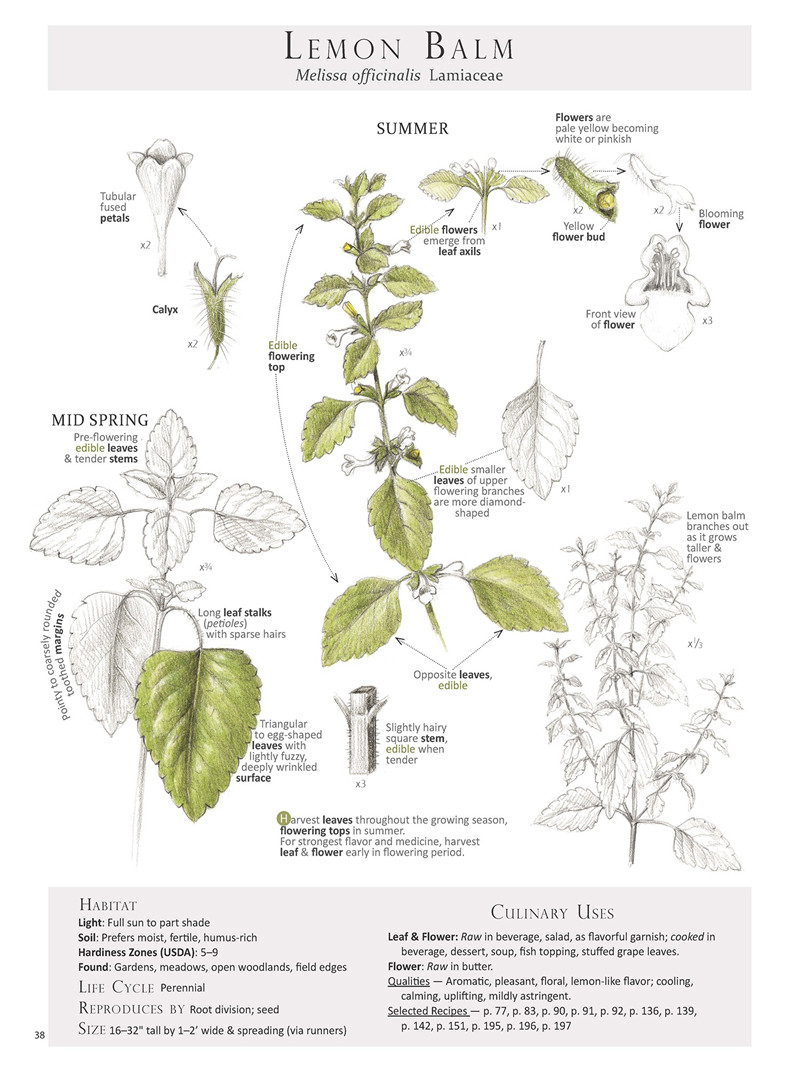Recently, a new study published in Nutrients highlights that Melissa officinalis (lemon balm) can reduce the severity of insomnia, improve sleep quality, and increase the duration of deep sleep, further confirming its effectiveness in treating insomnia.

Lemon Balm's Efficacy in Improving Sleep Confirmed
This prospective, double-blind, placebo-controlled, crossover study recruited 30 participants aged 18–65 (13 males and 17 females) and equipped them with sleep monitoring devices to assess the Insomnia Severity Index (ISI), physical activity, and anxiety levels. The participants' key characteristic was waking up feeling fatigued, unable to recover through sleep. The improvement in sleep from lemon balm is attributed to its active compound, rosmarinic acid, which has been found to inhibit GABA transaminase activity.


Not Just for Sleep
Lemon balm is a perennial herb from the mint family, with a history spanning over 2,000 years. It is native to southern and central Europe and the Mediterranean Basin. In traditional Persian medicine, lemon balm has been used for its calming and neuroprotective effects. Its leaves have a subtle lemon scent, and in summer, it produces small white flowers full of nectar that attract bees. In Europe, lemon balm is used to attract bees for honey production, as an ornamental plant, and for extracting essential oils. The leaves are used as herbs, in teas, and as flavorings.
In fact, as a plant with a long history, lemon balm's benefits go beyond improving sleep. It also plays a role in regulating mood, promoting digestion, relieving spasms, soothing skin irritations, and aiding in wound healing. Research has found that lemon balm contains essential compounds, including volatile oils (such as citral, citronellal, geraniol, and linalool), phenolic acids (rosmarinic acid and caffeic acid), flavonoids (quercetin, kaempferol, and apigenin), triterpenes (ursolic acid and oleanolic acid), and other secondary metabolites like tannins, coumarins, and polysaccharides.
Mood Regulation:
Studies show that supplementing with 1200 mg of lemon balm daily significantly reduces scores related to insomnia, anxiety, depression, and social dysfunction. This is because compounds like rosmarinic acid and flavonoids in lemon balm help regulate various brain signaling pathways, including GABA, ergic, cholinergic, and serotonergic systems, thereby relieving stress and promoting overall health.
Liver Protection:
The ethyl acetate fraction of lemon balm extract has been shown to reduce high-fat-induced non-alcoholic steatohepatitis (NASH) in mice. Research has found that lemon balm extract and rosmarinic acid can reduce lipid accumulation, triglyceride levels, and fibrosis in the liver, improving liver damage in mice.
Anti-inflammatory:
Lemon balm has significant anti-inflammatory activity, thanks to its rich content of phenolic acids, flavonoids, and essential oils. These compounds work through various mechanisms to reduce inflammation. For example, lemon balm can inhibit the production of pro-inflammatory cytokines, which play a crucial role in inflammation. It also contains compounds that inhibit cyclooxygenase (COX) and lipoxygenase (LOX), two enzymes involved in producing inflammatory mediators such as prostaglandins and leukotrienes.
Gut Microbiome Regulation:
Lemon balm helps regulate the gut microbiome by inhibiting harmful pathogens, promoting a healthier microbial balance. Studies suggest that lemon balm may have prebiotic effects, encouraging the growth of beneficial gut bacteria such as Bifidobacterium species. Its anti-inflammatory and antioxidant properties also help reduce inflammation, protect intestinal cells from oxidative stress, and create a more favorable environment for beneficial bacteria to grow.


A Growing Market for Lemon Balm Products
The market value of lemon balm extract is expected to grow from $1.6281 billion in 2023 to $2.7811 billion by 2033, according to Future Market Insights. Various forms of lemon balm products (liquids, powders, capsules, etc.) are increasingly available. Due to its lemon-like flavor, lemon balm is often used as a culinary seasoning, in jams, jellies, and liqueurs. It is also commonly found in cosmetics.
Justgood Health has launched a range of soothing sleep supplements with lemon balm. Click to learn more.
Post time: Dec-26-2024





